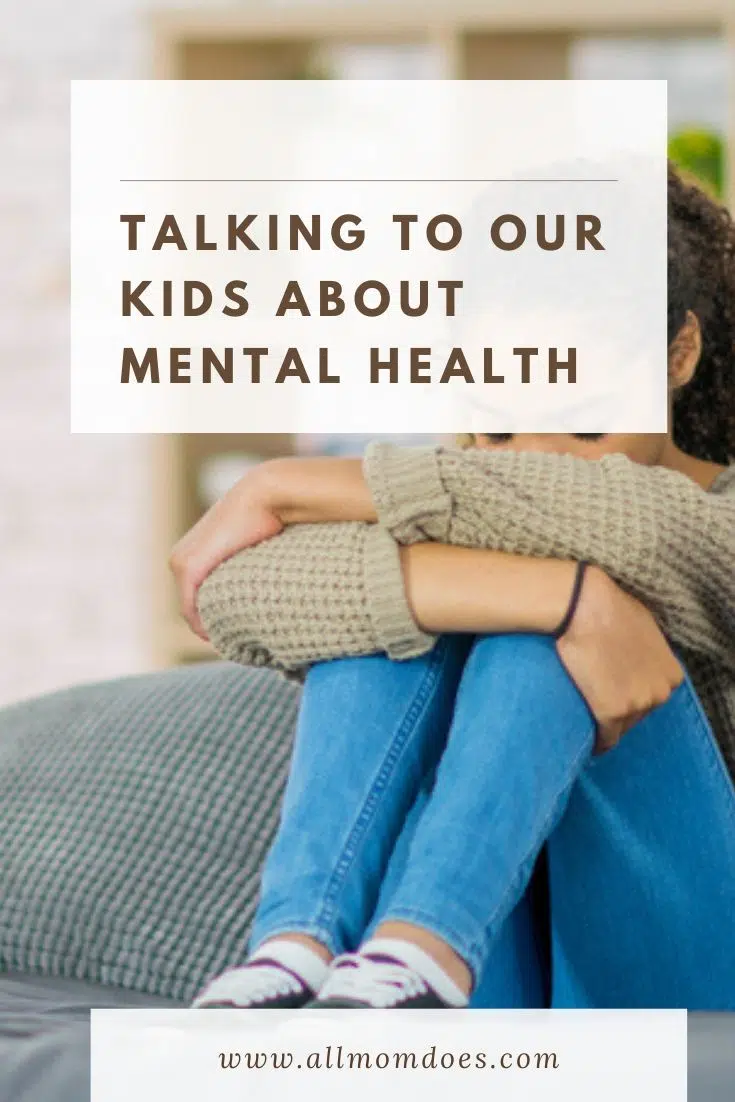Parenting is challenging, especially in today’s society (said every parent in the history of ever). We are attempting to help our children navigate the explosion of technology and social media, all while trying to figure it out ourselves. We are having hard conversations about important things like drugs, underaged drinking, and sex. But I think we might be missing the mark on a very important topic: mental health.
Granted, my perspective on mental health isn’t the norm. As we have parented kiddos through foster care who have experienced trauma, we have had a crash course on mental health. We are well acquainted with counseling, therapies, and having open conversations with our kiddos who have come from difficult pasts. But it isn’t just those kids who will struggle with mental health.
I’m sure you’ve seen the headlines. There is a mental health crisis affecting our children. The stories and statistics are frightening. You don’t have to look very far to find information like this: “More U.S. adolescents and young adults in the late 2010s, versus the mid-2000s, experienced serious psychological distress, major depression or suicidal thoughts, and more attempted suicide,” said lead author Jean Twenge, PhD, author of the book “iGen” and professor of psychology at San Diego State University (quote taken from an article found here). And while kids who have experienced trauma are, sadly, at higher risk for mental illness, the rising trends are being seen across the board.
Mental health is something our kids need to be aware of. It’s something we need to be talking to them about. But how? How are we supposed to sit our kids down and tackle this monster topic? It’s sad and scary and difficult. I’ve decided to handle it similarly to how I am having ‘The Ongoing Sex Talk’ with my kids: in small increments, over time, giving age appropriate information whenever opportunities present. Our initial conversation was brief and varied for my kids of different ages. Initially, I just laid a foundation for what mental health is. I used this basic definition that I modified from www.mentalhealth.gov: “mental health is our emotional well-being.” I told them that just like we take care of our bodies to make sure they are healthy, we need to take care of our minds to make sure they are healthy too.
I encouraged them to be aware of how they are feeling and to come to me if they ever feel overly stressed or sad or anxious. I assured them that although I am not a professional, I will find them help if they need it. I try to regularly ask specific questions like “Are you worried about anything? Have you been feeling cranky? Do you know what’s bothering you? How have you been sleeping?” Hopefully asking these questions will teach them to be aware of what they are feeling. It can also be helpful to model good behavior and habits. A friend shared with me that when her teen asked why she exercises every day she responded, “because it helps me feel less worried and less sad.” Teaching our kids what skills have helped with our own struggles will show them that there are techniques that can help.
There are resources out there to help. There is a great toolkit you can sign up for at www.mhanational.org. It has some talking points, statistics, and an article that you could be use as a script for opening the conversation with your kids. Our local school counselor recommended the following websites: for teen girls www.girlshealth.gov has some great tips, www.mindfulnessforteens.com offers guided meditations for teens.
We want our kids to know that we are a safe place to come when they are feeling scared or overwhelmed. We want our kids to know that it’s not uncommon to feel anxious or sad. We want our kids to know that help is available if they need it. But how will they know if we don’t tell them?
Take a few minutes today and talk with your kids about mental health. Then hug them and tell them you love them.

How to talk to your kids about mental health.
RELATED:
 Read more of Abbie Mabary’s contributions to allmomdoes here.
Read more of Abbie Mabary’s contributions to allmomdoes here.

















